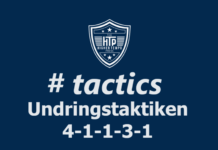‘Protocols.’
Our host, at what I have to say is a rather superior pizza restaurant in Ceadir Lunga, Moldova, looks curious when I say this.
‘In our work,’ I explain, ‘we find that a frequent source of sub-optimal performance is that people try to work out – or remember — how to do something at the same time as they’re actually doing it. Better, where possible, to figure it out in advance, then write down as a protocol – by which I mean, a series of numbered steps — what needs to be done. Then just follow the protocol.’
That Mr Merciu lifts his fork and puts another piece of focaccia in his mouth is a signal that he’d like me to continue speaking.
‘Here’s the thing about protocols,’ I venture. ‘There are two ways of gaining an advantage over competitors. You can innovate. And you can implement existing methods, but just do them better. Innovation has sex appeal, but is difficult to do. Simply having a method for ensuring that you actually implement the best known practice, rather than just intend to implement it, can give you an edge.’
‘Such as?’
Merciu’s tone is that of a man who is not yet convinced, but who is hoping to be provided with sufficient evidence to become so.
‘Take, for example, accidents at work. Many of them could be avoided by just working through a series of known steps. Just doing what it says in the manual.’
‘That is a problem in Moldovan agriculture,’ Merciu volunteers. ‘So many injuries. And so many avoidable! In fact, that has become an aim of my agricultural machinery business: not just to turn a profit, but also to reduce the number of injuries.’
I sense that Karen is about to congratulate him on his stakeholder management, so I kick her under the table to ensure that she desists.
‘I can see,’ Merciu adds, now wearing his Chairman of FC Saxan hat, ‘that it might be the same with football players. Yes, I like the idea of protocols.’























